Reflecting on the tenets that shape our educational practices is fundamental for …
Child Care Provider Strives to Shine Spotlight on the Invisible Workforce
Jennifer Livingstone
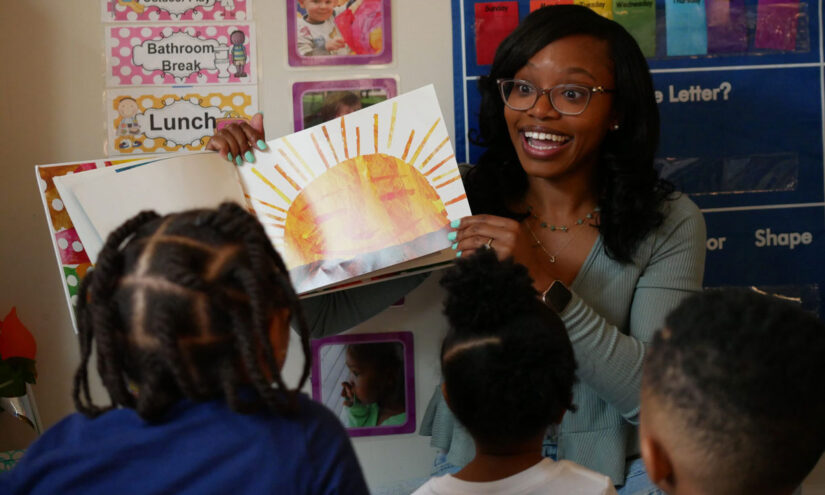
A veteran in the field, Shalicia Jackson, also known as Shay, has amassed a wealth of experience in early childhood education.
Jackson’s extensive resume includes roles such as assistant child care teacher, lead teacher, Head Start coordinator, family advocate, and social worker in public schools. She has worked in various settings, including nonprofits and the Durham Partnership for Children, where she trained teachers to enhance their support for young children. With a bachelor’s degree in early childhood education and a master’s degree in social work, Jackson has a strong educational background.
However, Jackson ventured into uncharted territory when she launched the Modern Early Learning Academy in 2022, a five-star family child care home in Winston-Salem.
“One aspect of child care that I had limited exposure to was family child care,” Jackson remarked on a sunny day in her backyard.
“I was aware of its existence, but like us now, it was invisible. We operate as an unseen workforce.”
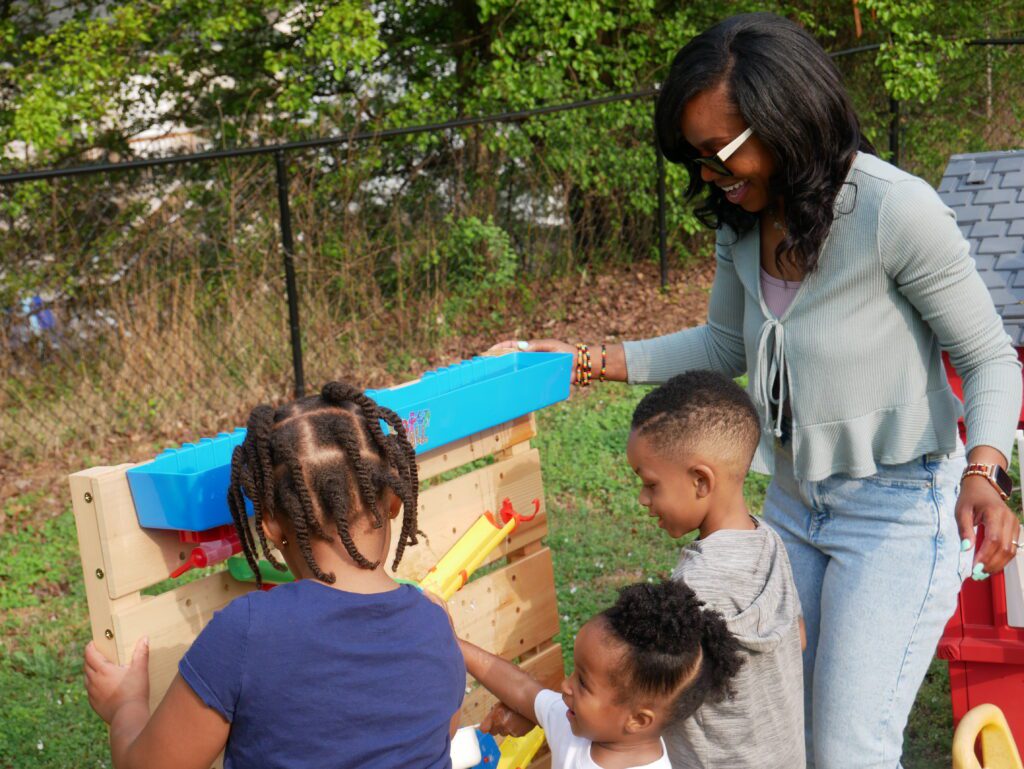
Amidst a sector teetering on the edge of collapse, family child care providers like Jackson feel even more undervalued compared to their center-based counterparts.
Family child care homes, licensed programs run in providers’ residences, receive lower subsidy reimbursements than centers and lack access to NC Pre-K funding. Since 2018, the number of family child care homes statewide has plummeted by 34%.
However, families often prefer family child care for its intimate settings, flexible schedules, and cultural alignment. Experts note that the business model of family child care is more sustainable, especially in rural areas where there might not be enough children of a specific age to fill entire classrooms.
In the post-pandemic era, regional and state initiatives have emerged to safeguard North Carolina’s family child care network, recruit new home-based providers, and offer training and advocacy avenues.
Jackson’s initiative is a result of one such effort – a 2021 family child care expansion project by Smart Start of Forsyth County, focusing on women of color interested in launching programs.
However, her program stands out as the sole survivor among the five projects that received start-up grants from the initiative.
“This career choice has been both remarkably challenging and rewarding,” Jackson revealed. “That’s why I advocate – for those who paved the way before me and those who will follow. I need to fulfill my responsibilities because, considering my varied roles in the field, this endeavor is incredibly demanding.”
Amidst the looming uncertainties in child care, Jackson is dedicated to fostering more understanding, respect, and investment in family child care, especially among local providers.
Juggling Multiple Responsibilities
It was Jackson’s journey as a parent that led her down this unexpected pathway.
Upon relocating from Durham to Winston-Salem for more affordable housing, Jackson intended to commute back to her job in Durham. However, like numerous new parents returning to work, she struggled to find child care for her toddler son.
“I was devastated. Every place I contacted,” she recalled, “had waitlists ranging from six months to over a year.”
It was Jackson’s sister who suggested the idea of launching a family child care home – a solution that not only addressed her child care dilemma but also allowed her to spend more time with her son, leveraging her space and early childhood expertise.
Over the past three years, Jackson has encountered the intensity and multifaceted demands of the role.
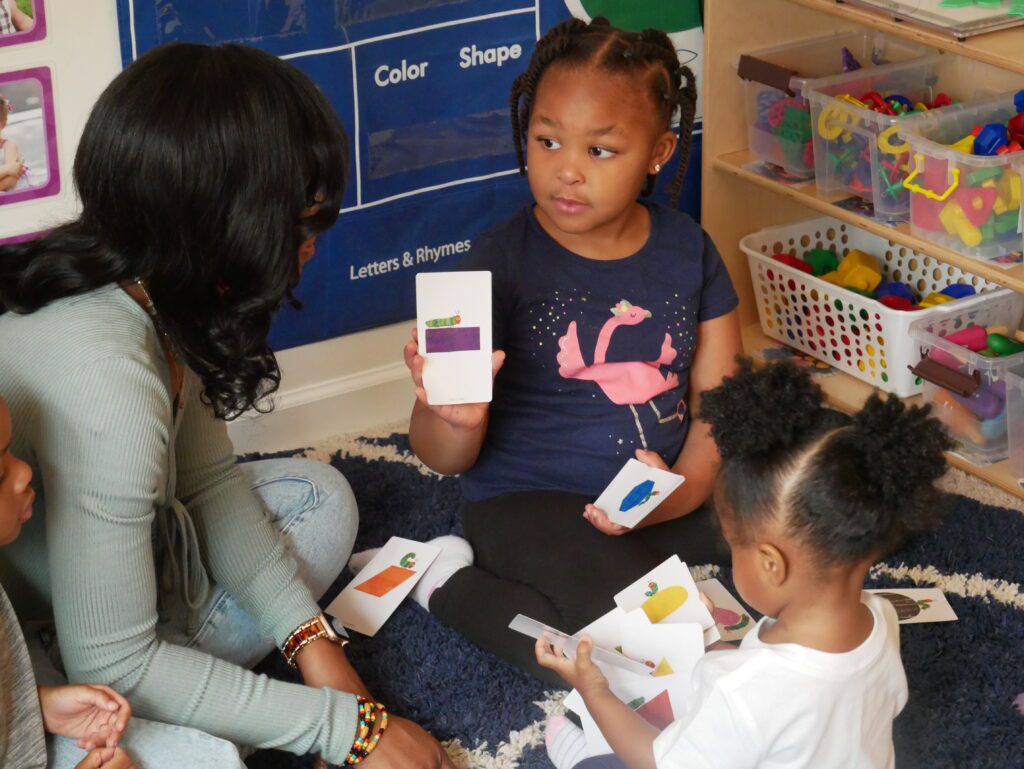
Family child care providers wear numerous hats – they are the primary caregivers responsible for education, nutrition, transportation, and family support services. Additionally, they serve as administrators, customizing curriculum and assessments, maintaining licensing requirements, and managing finances. Jackson emphasized the challenge of these varied responsibilities, highlighting the need to compare family child care providers to directors rather than teachers.
For Jackson, the very essence that drew her to family child care – motherhood – has evolved into one of the most intricate balancing acts.
Due to state licensing regulations, her son KJ occupies one of the licensed seats in her facility. However, for three hours during the day, he attends another child care program that recently opened.
“Establishing clear boundaries, for both myself and my son, was exceedingly challenging,” she acknowledged.
“I found it incredibly difficult to navigate between being his mother and being his teacher, while he struggled to differentiate between being at home and at school,” Jackson added.
Consequently, Jackson faces a double loss, as she pays for out-of-home child care without being able to enroll another child in her son’s place.
Moreover, as KJ approaches kindergarten, Jackson grapples with determining the way forward.
‘A Seat at the Table’
Although Jackson stumbled into family child care due to personal circumstances, she quickly discovered a broader purpose in connecting with seasoned family child care providers.
Recognizing the relentless demands of the profession, Jackson saw the need to create a supportive environment where fellow providers could find camaraderie and empathy.
Through the Triad Self Care Support Group – both an in-person and online community offering fellowship, professional development, and a platform to exchange stories, resources, and challenges – Jackson established a space for mutual support.
Jackson also shares advocacy tools and opportunities. During EdNC’s visit in April, she mobilized group members to attend a local discussion with elected officials and representatives from community institutions. The day concluded with Jackson receiving a voicemail from a Smart Start representative seeking to engage family child care providers in their initiatives.
“It’s imperative for family child care home providers to have a voice in the decision-making process,” Jackson stressed. “We can’t afford to remain passive observers. We must adopt a solution-oriented approach, actively participate in committees and organizations, engage with decision-makers, and showcase our presence. Otherwise, we’ll remain at the bottom of the ladder, overlooked while other priorities take precedence. We’ll continue to suffer the consequences.”
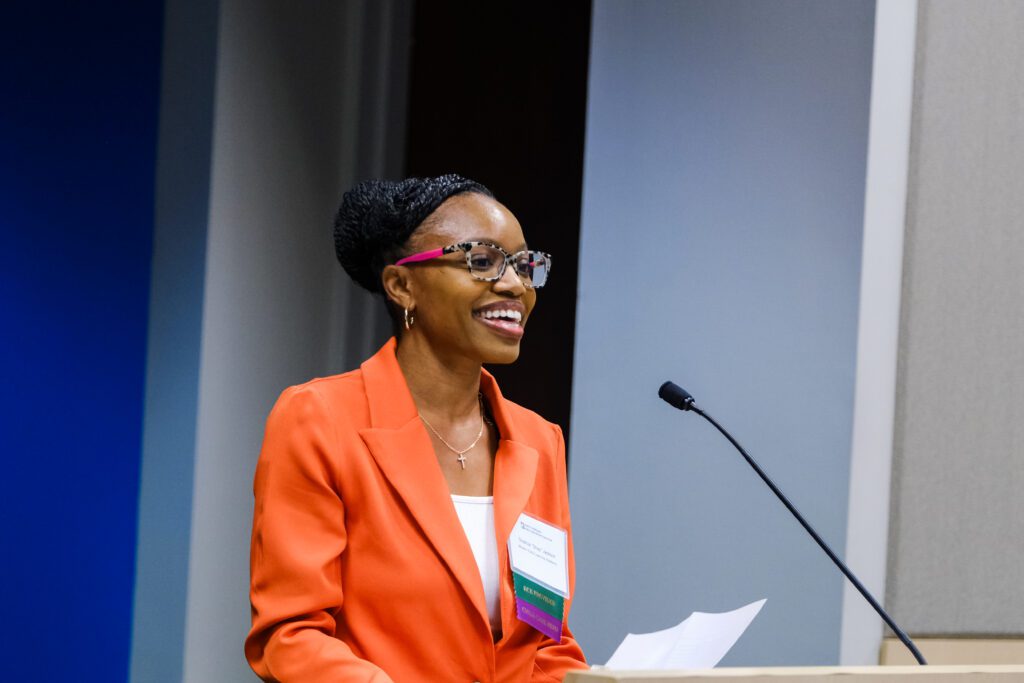
A member of the steering committee for the Pre-K Priority initiative in Forsyth County, Jackson actively advocates for universal pre-K expansion while emphasizing the inclusion of family child care homes as potential sites. She collaborates with the state chapter of the National Domestic Workers Alliance to champion early childhood investments at the state level. Her advocacy efforts were recognized with the NC Early Education Coalition’s Child Care Heroes award in November 2023.
“Throughout my advocacy journey, I’ve realized that anyone, including those without prominent titles or advanced degrees, can drive change by raising their voice and advocating for their beliefs,” Jackson articulated during the award acceptance. “Parents and child care providers play a vital role in advocating for the best interests of children. Their pivotal decisions and guidance are truly heroic, making them the unsung heroes. We must value their invaluable contributions and amplify their voices.”
The children under her care and the families she treats as part of her extended community form the heart of the environment Jackson has cultivated.
“Child care is my calling,” Jackson affirmed. “It’s my purpose. The universe led me here. Witnessing the growth of the children, seeing the parents’ contentment – that inspires me.”
‘Not on a Good Path’
One particular family’s story continues to resonate with Jackson, encapsulating the essence of her caregiving, educational, and advocacy journey.
It’s the narrative of Cayden and Samantha Black. When Cayden’s previous child care facility closed due to staffing shortages, the family faced a dire situation, with only 30 days to secure alternative arrangements.
“They were desperate when they approached me,” Jackson recalled, fortunately having an available spot for Cayden.
Cayden flourished in Jackson’s program, contrasting his experience at larger daycares with a more personalized approach under Jackson’s care.
Both Samantha Black and Jackson witnessed Cayden’s remarkable growth in the program.
After working full-time in retail and an auto shop, Black took maternity leave to care for her second child, Colt, born with complex health issues, further complicating the search for child care.
At the time, Jackson lacked the capacity to accommodate a child with medical needs, forcing Black to navigate rejections while contending with financial strains.
“My husband is the sole breadwinner,” Black revealed. “He’s a mechanic, passionate about his work, but the pay is meager.”
Struggling as a stay-at-home mother, Black highlights the importance of accessible child care for her children’s development and socialization.
“I feel guilty; he needs companionship,” Black expressed regarding Cayden. “He craves the structure of school.”
Parting ways with Jackson’s program left a void for Cayden, impacting both him and Jackson emotionally.
“Witnessing Cayden’s progress and building that rapport – it hit me hard. The foundations of the child care system seem unsustainable. Change is imperative,” Jackson reflected. “Samantha’s story remains indelible. I wish I could have done more to support the family.”
‘Seeking Solutions’
Fueled by the recognition of systemic fragility in the child care infrastructure, Jackson remains steadfast in her commitment to effecting change.
Jackson established her program amid the distribution of stabilization grants funded by the American Rescue Plan Act, critical in sustaining her venture.
“Without the stabilizing grant and local support, my program wouldn’t have endured this long,” Jackson acknowledged.
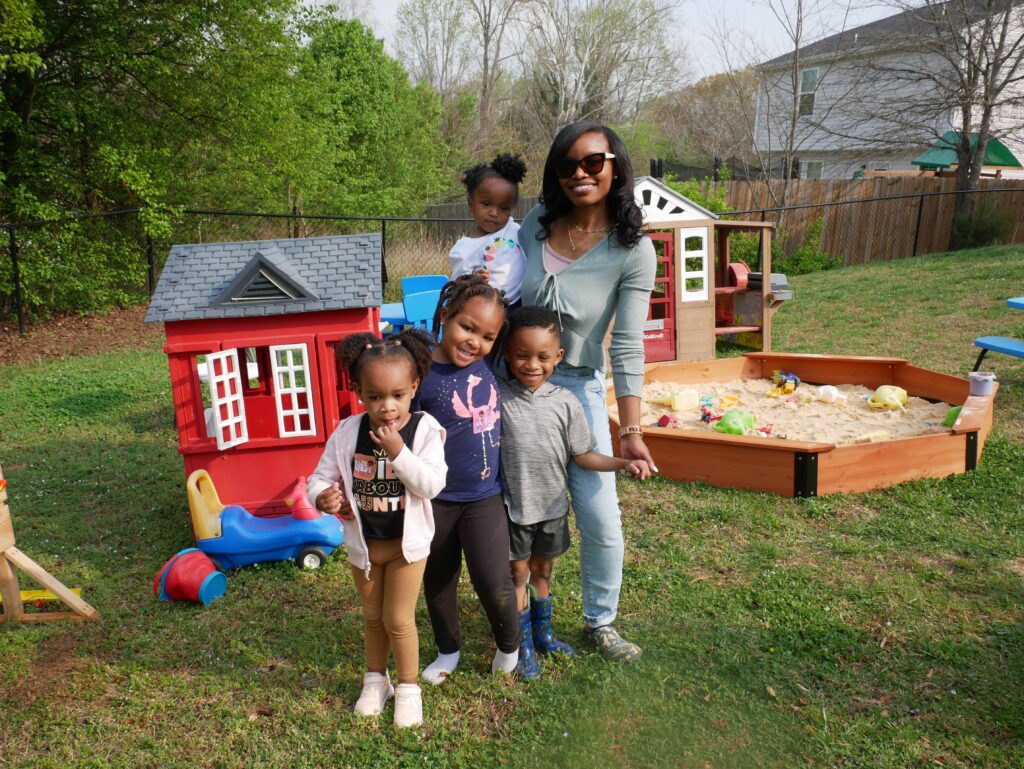
As the stabilization grants conclude on June 30, providers are anxiously looking to state legislators for an extension. A survey from the NC Child Care Resource & Referral Council forewarns that approximately one in five child care programs may shutter within a year without continued support, potentially resulting in higher costs for parents.
Facing looming uncertainties, Jackson expresses apprehension over potential closures and cost increments. Grateful for her spouse’s financial and emotional backing, she explores alternate revenue streams to ease the burden on parents.
“Raising prices is unjust to my families,” Jackson affirmed. “Perhaps adding one or two children for my second shifts, exploring delivery services like Uber Eats – these are potential avenues to supplement… I don’t have all the answers. I’ll strive to sustain operations for as long as possible, seeking innovative solutions,” Jackson concluded.


